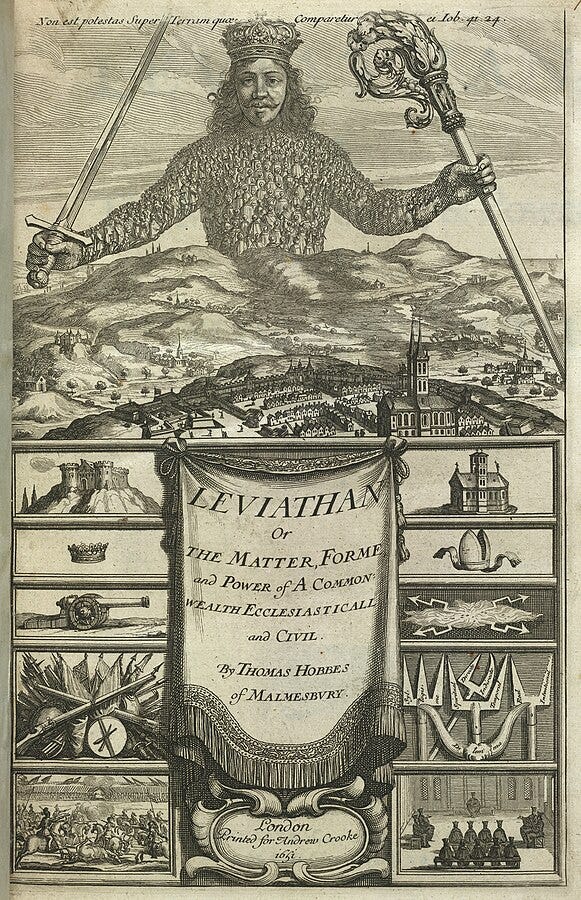Assassination attempts and the state of nature
Violence is not the exception, but the rule―unless we choose otherwise
The combination of liberal democracy and technological development since the industrial revolution has made for levels of comfort and security that are historical anomalies. People yearned for millennia to live as we live. The paradox of this historical achievement is the advent of pathetic people who take this quality of life for granted. Never having known real scarcity and hunger, never having known politics without the rule of law and relative stability, someone born today has to be skillfully educated—intellectually, emotionally, morally—to understand how good we have it.
Political violence in this context betrays a profound ignorance of the past and an ingratitude for the present. A naïve confidence that our situation requires no care. A failure to account for cultural and political entropy. The structures on which our life depends tend, without our continued and conscious efforts, to break down.
The state of nature, and what has been the state of human social life for most of our species’ history, is brutal.
It is vital to interpret acts of political violence in this way, not as aberrations from the norm, but as the cold flood of nature seeping into our leaky ship. Life in the boat is the anomaly. It will not do to point the finger at the ocean and blame it for pounding against us. The only relevant question is what we have done to allow the boat to fall into disrepair.
This metaphor, drawn from the biblical saga of the flood and Noah’s ark, became popular in Christian history. Christians saw the ark as an allegory for the church, and the flood as the sinful world that threatened to drown us; the church saw itself as a safe haven within a life-threatening world. But the sharp line between the church and the surrounding world blurred with time, and eventually the moral and social achievements of Christianity were secularized. The political end result of that process was liberal democracy.
The only problem with this origin story of liberal democracy is that it, too, betrays an ignorance of entropy. Liberal democratic politics would work just as long as the culture remained Christian. The ostensibly secular political order is not so much a secularization of Christianity as a parasitic outgrowth from Christianity—depending on its “host” to survive.
Western culture has been post-Christian for some time, and Western political life has long forgotten its dependence on Christian cultural sensibilities. It is this forgetfulness that makes it possible to see political violence as an interruption of the normal state of things rather than the most mundane expression of the state of nature. It is this forgetfulness that has allowed us to neglect maintenance of the boat. But if we have allowed the boat to fall into disrepair, we don’t have much of a right to be surprised when the water starts pouring in.
For too long, our cultural elites—the people entrusted as stewards of our common life—have given a pass to the idea that there is no truth, only power. Both political left and right (though especially the left), and people both within and outside of Christian communities, have had a fetish for interpreting life through the lens of power. Virtually every otherwise-important issue in common life has been trivialized by a discourse that treats power as the only relevant question. This is the root conviction of absurd claims that language (or silence) is violence: if there is no truth, speech has no other measure of judgment than whether it confers or takes away power. Is it any surprise that, in this environment, “violent” rhetoric would materialize into actual violence?
These seemingly abstract philosophical questions, whether there is truth and whether there are considerations other than power that matter for human relationships, require urgent attention if we hope to plug the holes in this imperfect but lifesaving boat. It’s past time to remember what’s natural and what is a human achievement that requires attention, care, humility, and gratitude.



Matt, this is great -- you really should be aiming higher with this, like The Atlantic or NYT.
Thank you for this timely reminder.